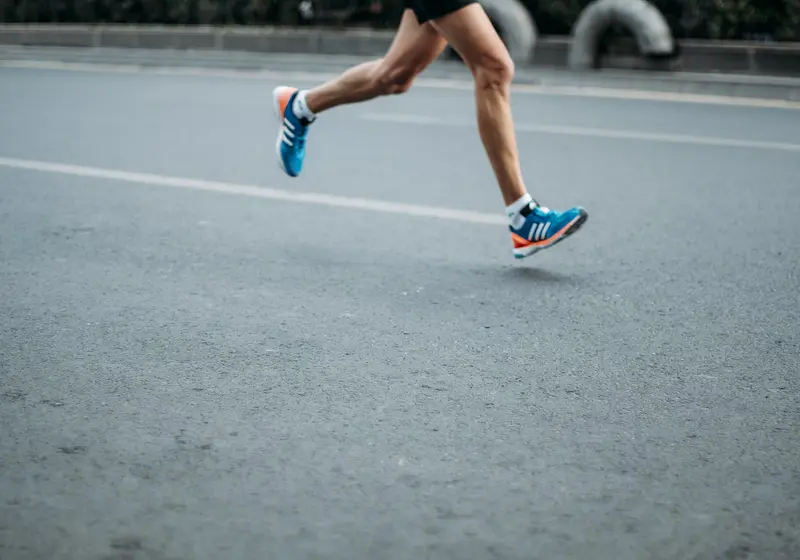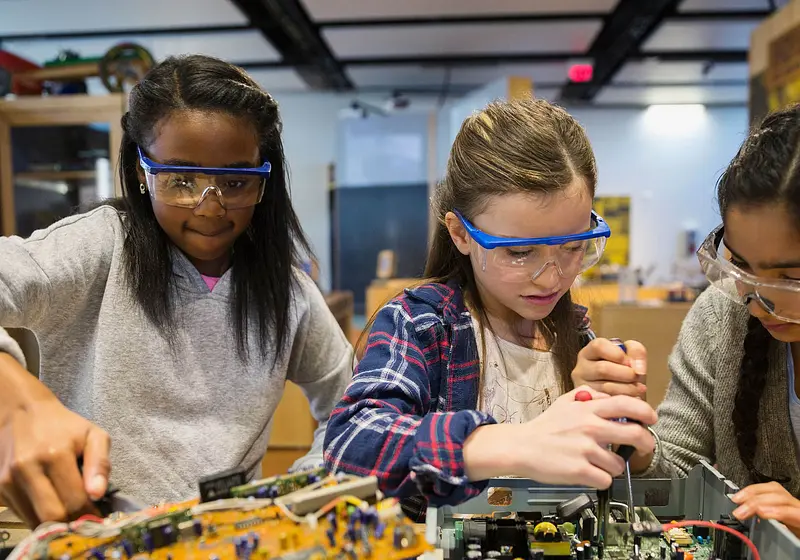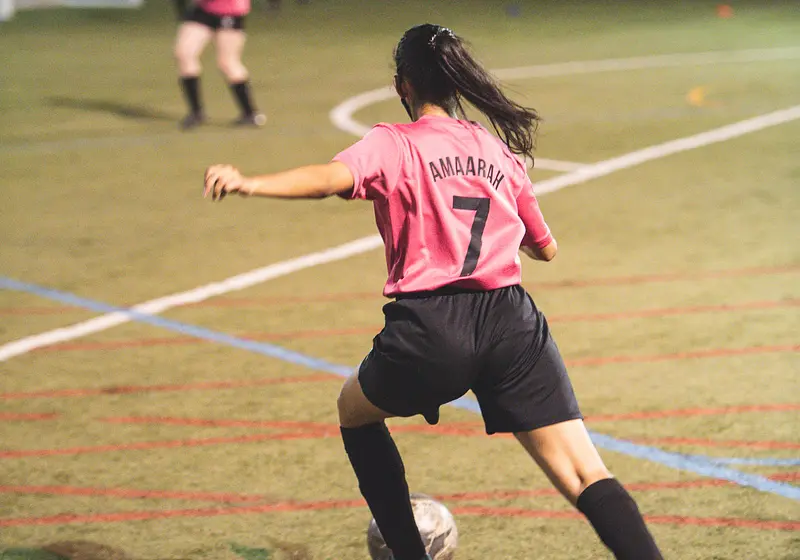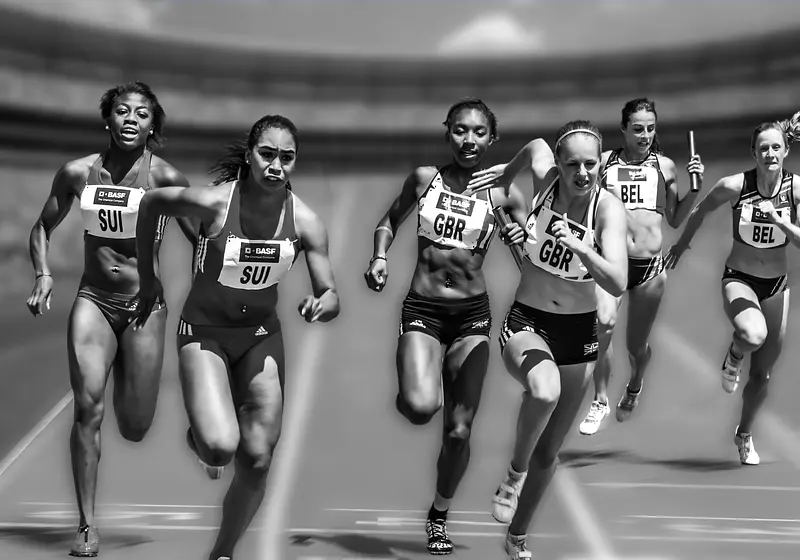As teenagers, we're going through many changes—we're taking in tons of inputs around us and using that to explore and develop our identities. But, the danger arises because young kids are impressionable and are quick to make assumptions based on the patterns of these inputs: stereotypes. When a young kid sees that most of their teachers are female or sees their dad watching sports while their mom cooks dinner, they develop an oversimplified image of a person or group of people that bleeds into every part of their life. Specifically, this issue is undeniably present in youth sports today, where the vicious cycle of a lack of female inclusion driving less participation and less acceptance enables kids to form stereotypes that inform their behavior and opinion about the place of women in the sports space—these are the same people that will one day stand up and make policies that justify paying women less, excluding them from leadership roles, and pushing them out "male professions."
I work as a sports instructor for ages 1-13, and it's amazing to see the changes in kids' behavior and attitude as each consecutive class serves an older age group. I found that in earlier years, especially the 3-5 age group and even often the 5-8 age group, kids of both genders were seamlessly mixing, cooperating, and collaborating. However, I saw the most stark changes in the 8-10 age group.
The first time I began noticing issues of gender stereotyping was when one of my coworkers punted a soccer ball far down the field. A ten-year-old boy commented: "Wow, I didn't know girls could do that." While still appalled, I thought that maybe this was a one-off event. But then I began realizing more minute things—kids opting to pick and pass to male coaches over clearly more skilled and qualified female coaches, male students refusing to play if they had an all-girls team, and so on.
I was left asking questions: Is it just me? Where and who were these opinions coming from? When did they start forming? Is it just a phase?
I first looked to research for an explanation. Researchers have found that gender stereotyping starts from around the age of two as this is the first time a child begins to realize differences in gender appearance, roles, and more. However, the sophistication, specificity, and articulation of these stereotypes doesn’t come till later—maybe around eight years old. This aligns with what I saw—ten-year-olds with no filter starting to make their now entrenched beliefs known to the world.
I then looked to the community for their experiences. I sent out a survey to various people, asking questions about their opinions on the inclusivity of organized sports and the prevalence of gender bias in them. 75% of participants answered that they had seen some sort of gender bias, discrimination, or negative stereotyping. Specifically, people cited things like choosing activities that specifically favor boys' strengths, explicitly calling out female inferiority in strength and other capabilities, biased PE teachers, blatant exclusion of girls, and more.
Many people will say, "Well, It's just a PE class," or "It's just a game." But sports and the PE field are a microcosm for life. The very stereotypes in sports— a masculine activity that women who are "dainty," "passive," "incapable," and "delicate" should have no place in—become the learned gender roles of the women: a submissive homemaker and the man: the assertive breadwinner.
This deeply affects sports at a professional level. I recently read a slogan on a hoodie that said: “One Day Women's Soccer is Just Soccer.” The sentiment resonated with me as the issue of gender marking: rendering female athletes and women’s competitions as secondary through naming conventions, is extremely pervasive yet totally accepted. For example, we call the men's tournament the ‘World Cup’ but the women’s the Women’s World Cup.
On top of this, women are objectified at a far greater rate, with their appearance and attractiveness discussed in the media more than even their performance. We saw this in 2021 when the Norwegian Beach Volleyball took a stand against the sexualization of women’s bodies through requesting to wear shorts instead of the standard, revealing bikini. They were not only ignored but were even threatened with a fine. The clothes they wear became a more important focus than the game itself. Sadly, what people pass off as small, irrelevant actions are the clearest displays of the subconscious stereotypes we’ve now internalized. Finally, to top this all off, women still get a tiny fraction of the pay and investment that the men's game gets—while men's teams are rolling in money, one women’s national team had to fundraise to even come to the World Cup.
But, even if you don’t care about sports, the virus will catch up with you. A study by the Fawcett Society found that 51% of people who experienced gender stereotyping during their youth felt more constrained in their career choices and 44% said that it harmed their personal relationships. Specifically, we can see that women make up just 31% of STEM students, women hold only 35% of senior leadership positions, and a quick examination of American politics would show that the country has had zero female presidents in centuries of its history. Even if it’s not explicitly said, women have been labeled as “unfit” to fill many of these positions based on the characteristics they have been defined with. The fact that they feel unwelcome and face considerable barriers further fuels the vicious cycle that all began in youth. Ultimately, it seems like the stereotypes don’t go away, they just take new shape in the minds of fully formed adults who start the cycle all over again.
This all started with an observation—the words of a few kids while at work. Still, it's something I couldn't shake because kids, at such a young age, too, are learning these things from somewhere, and I don't want to live in a world where gender so clearly seems to be defined by arbitrary roles passed on from generation to generation. Maybe it's just a PE class, a harmless game, or a comment, but sometimes we need to acknowledge that it's bigger than that.
Rather than finding band-aid solutions when we see the effects of these issues in society, like using gender quotas, for example, let's start at the root—what will it take to change the mindset? I don't have the answers, but I believe small changes in our actions can collectively make a difference. Parents, it's time to redefine traditional roles, embrace emotional openness, and actively mold a world where arbitrary stereotypes hold no power. Educators, particularly those shaping the landscape of physical education, must create environments that foster inclusivity, curb unfounded comments, and dismantle discriminatory behaviors before they take root. Finally, teenagers, we have to be aware of these stereotypes. And, however strong society or even your subconscious pulls you, don't let them define what you do, and don't stop fighting to make that a given one day.















